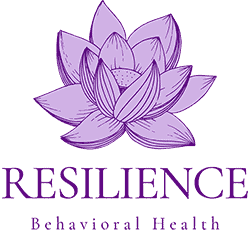Helping someone addicted to drugs can be a difficult event to process. Supporting someone who is struggling with drug addiction can be challenging, but it’s crucial to offer help and understanding. This article provides practical guidance and supportive strategies to assist individuals in overcoming addiction and embarking on the path to recovery. Resilience Behavioral Health is also here to help. Call now at 888.401.1179
Understanding Addiction
Recognizing the Signs:
- Changes in behavior, mood swings, and secrecy around activities.
- Physical signs such as bloodshot eyes, weight loss, or poor hygiene.
Educating Yourself:
- Gain knowledge about addiction, its effects, and available treatment options.
- Understand the specific substance(s) involved and their associated risks.
Establishing a Supportive Enviroment
Open Communication:
- Initiate non-judgmental conversations about their well-being and concerns.
- Listen actively, express empathy, and show genuine interest in their experiences.
Setting Boundaries:
- Establish clear boundaries regarding unacceptable behaviors and substance use.
- Communicate these boundaries with respect, emphasizing care and concern for their well-being.

Encouraging Treatment and Recovery
Researching Treatment Options:
- Explore available treatment programs, both inpatient and outpatient.
- Consider therapies like counseling, group support, and medication-assisted treatment (if applicable).
Intervention:
- Plan a structured intervention involving loved ones, expressing concern and offering support.
- Encourage the individual to seek treatment and provide information about available resources.
Supporting the Recovery Process:
- Accompany the individual to appointments, therapy sessions, and support group meetings.
- Offer emotional support, reinforce positive choices, and celebrate milestones and achievements.
Promoting a Healthy Lifestyle
Encouraging Self-Care:
- Promote physical well-being through healthy eating, exercise, and regular sleep patterns.
- Encourage engagement in activities they enjoy to promote a sense of purpose and fulfillment.
Avoiding Triggers:
- Identify and minimize exposure to environments or people associated with drug use.
- Help create a supportive network that promotes sobriety and healthy relationships.
Providing Emotional Support
Show Empathy and Understanding:
- Recognize that addiction is a complex disease and offer empathy without enabling.
- Avoid judgment and provide reassurance that recovery is possible with support.
Encouraging Healthy Coping Mechanisms:
- Assist in finding healthy outlets like hobbies, art, mindfulness, or therapy.
- Help them develop effective strategies for managing stress, triggers, and cravings.
Seeking Professional Help
-
Engaging Addiction Specialists:
- Encourage the individual to connect with addiction specialists, counselors, or therapists.
- Professionals can provide specialized guidance, assessment, and evidence-based treatment.
-
- Take care of your own mental and emotional well-being.
- Seek support from counseling, support groups, or other resources available for families and caregivers.
Helping someone addicted to drugs requires a compassionate and supportive approach. By understanding addiction, establishing a supportive environment, encouraging treatment, promoting a healthy lifestyle, providing emotional support, and seeking professional help, you can play a crucial role in their recovery journey. Remember, every person’s recovery process is unique, and patience, understanding, and unwavering support are vital. Together, we can make a difference and help individuals overcome addiction, reclaim their lives, and embrace lasting recovery. Resilience is here to help, call now 888.401.1179


